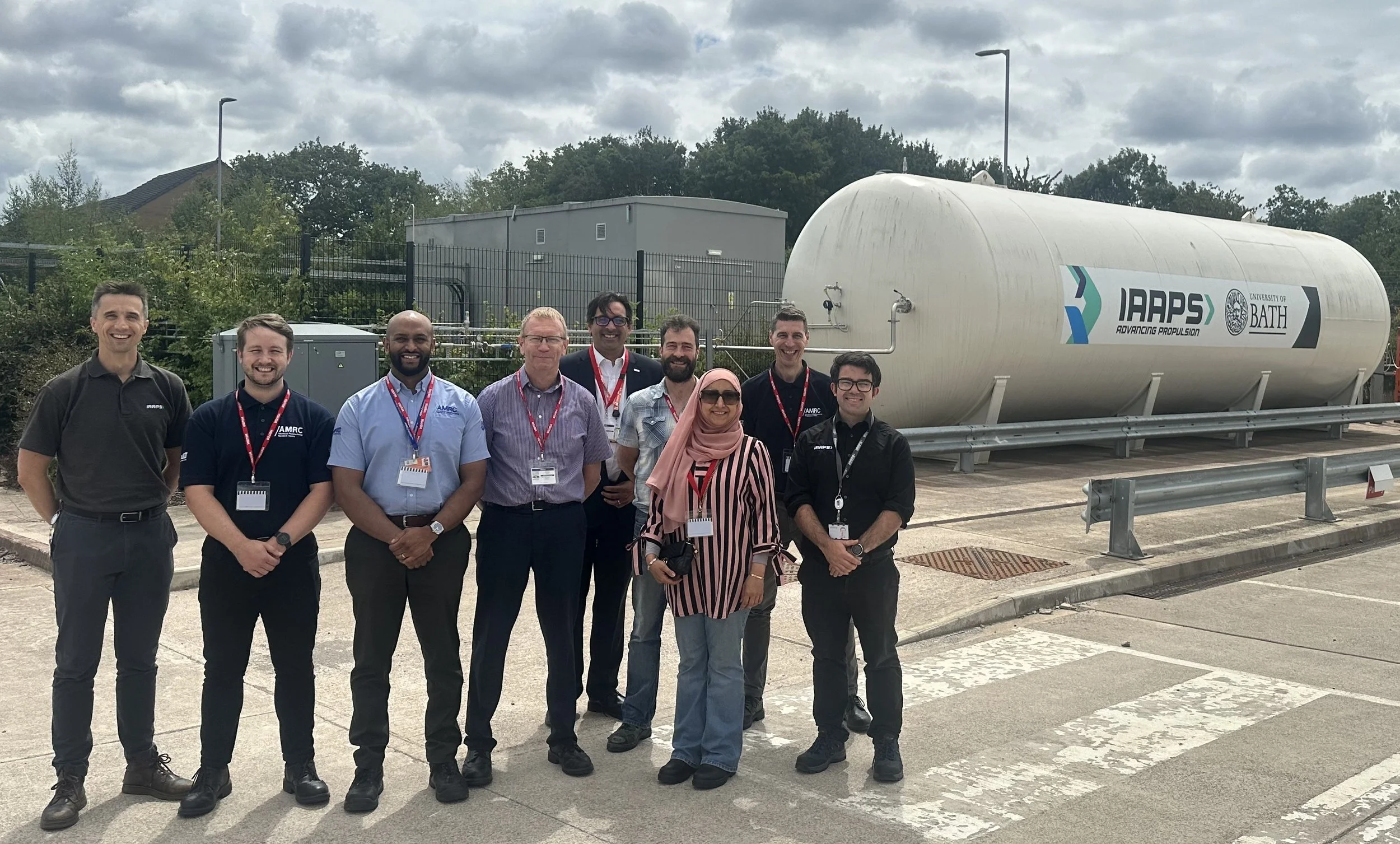HyFlux and AMRC secure ATI funding to deliver breakthrough in clean aviation cooling
Clean tech company HyFlux has joined forces with the University of Sheffield Advanced Manufacturing Research Centre (AMRC) to create a groundbreaking cryogenic cooling system designed specifically for hydrogen-electric aircraft.
The Swansea-based company will head up the new £1.5m project, named SUPERCOOL, aimed at enabling lightweight, high-efficiency cooling required for superconducting motor operation in zero-emission propulsion systems.
HyFlux will take care of project delivery, system architecture, and commercial strategy. The AMRC will support the engineering validation and integration, while the Institute for Advanced Automotive Propulsion Systems, (IAAPS), part of the University of Bath, will provide the test infrastructure to qualify the performance of the cooling system under realistic hydrogen conditions.
HyFlux Co-founders Paul Perera, Gareth Smith, Rob Bray and Noora Alfaez with AMRC colleagues James Hunt, Abdul Haque and Daniel Tomlinson, and IAAPS partners Ryan Nicholls and Karl Giles at the SUPERCOOL Project Kick-off Meeting. Image ©Hyflux
The Aerospace Technology Institute (ATI) Programme funding is funding £1.1m towards the work - with the remaining amount financed by the lead partner.
Paul Perera, Chief Executive Officer and Co-Founder of HyFlux, said: “This project marks a critical step forward in realising our vision for zero-emission propulsion. By bringing together cutting-edge IP from Victoria University of Wellington and world-class engineering in the UK, we’re creating a powerful innovation platform for clean aviation.”
James Hunt, Project Lead for the University of Sheffield AMRC, said: "We’ve been working with the team at HyFlux for a number of months seeking to address some of the challenges around propulsion systems for future aircraft, and this funding from the ATI provides the validation that the technology is a credible route to decarbonising aircraft.”
Achieving zero-emission flight across different segments of aviation will require a range of advanced technology solutions, including one based on superconducting electrical motors such as the one proposed by HyFlux.
One of the key challenges to address with such a system is how to keep the motor and power electronics at the optimum operating temperature, which could be as low as minus 240°C. The SUPERCOOL project seeks to design, manufacture and test the cryogenic cooling system essential to maintaining this temperature.
HyFlux, and the AMRC will work together to create novel designs for the cooling system components such as the heat exchanger. Computational fluid dynamics will be used to simulate the performance to ensure the system is as efficient as possible.
The project will also draw on expertise from the Institute for Advanced Automotive Propulsion Systems (IAAPS), part of the University of Bath, utilising its globally-recognised liquid hydrogen (LH₂) test facility to complete ground-based validation of the cryogenic cooling system. This advanced infrastructure will be instrumental in de-risking the technology for future flight demonstrations.
IAAPS Research Director Sam Akehurst said: “We're proud to be working alongside HyFlux on this high-impact initiative.
“SUPERCOOL exemplifies how UK-led partnerships can translate scientific research into commercially viable solutions for global net-zero aviation.”
This programme strengthens HyFlux’s growing portfolio of propulsion technologies and supports its broader roadmap to decarbonise both aerospace and maritime transport through scalable hydrogen-electric systems.
For more information, visit www.hyflux.aero.


